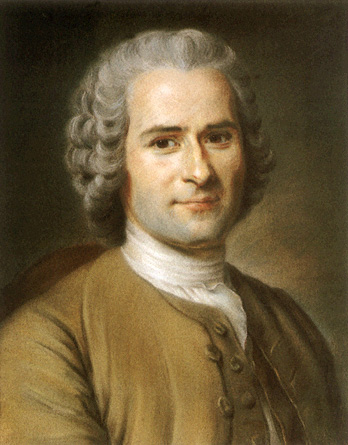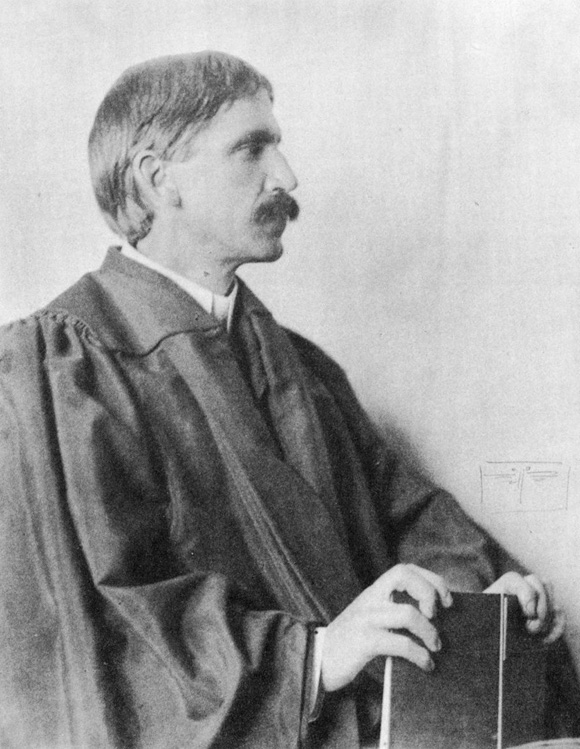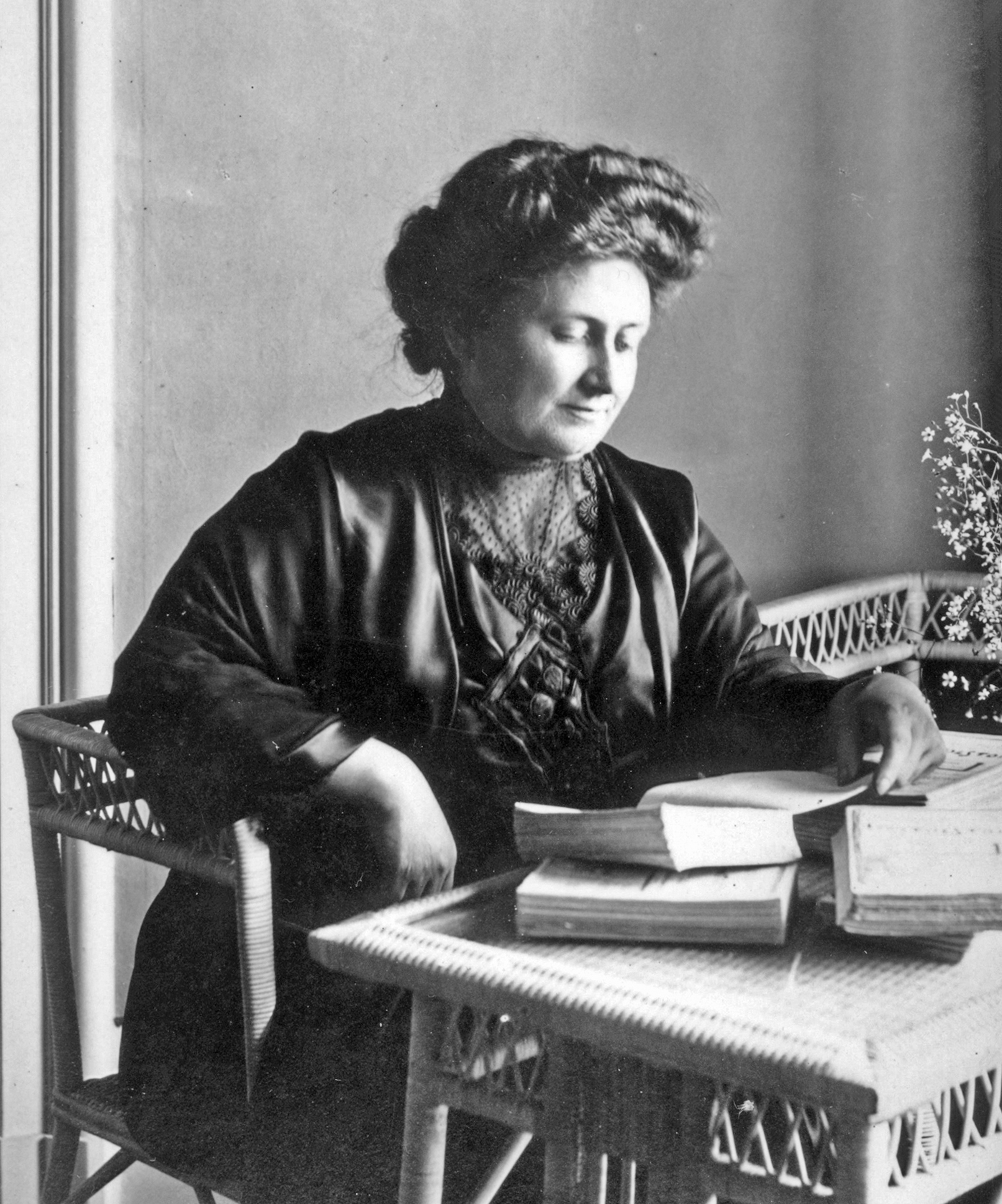" . . compulsory learning never sticks in the mind."John Dewey approached educational reform as a way to reform society on more scientific, humanistic, pragmatic, or social principles. Maria Montessori approached education on humanistic principles, in educating for peace, and the social goal of meeting the needs of the child. The modern notion of educational reform is tied into the concept of compulsory education. There is continuing debate in the US about education reforms, but the goal is clearly to use what we have learned about what works in education to try to improve teaching and learning in schools. (1,2)
Progressive reforms in Europe and the US
Child study Jean-Jacques Rosseau
Horace Mann (1796 –1859)
Mann used his political base and role as Secretary of the Massachusetts State Board of Education to promote public education in his home state and nationwide. Mann is seen as the father of American public education.No one did more than he to establish in the minds of the American people the conception that education should be universal, non-sectarian, free, and that its aims should be social efficiency, civic virtue, and character, rather than mere learning or the advancement of sectarian ends.(3)
John Dewey (1859-1952)
Dewey was an American philosopher and educational reformer whose ideas are associated with pragmatism, progressive education, and liberalism. His belief in democracy was the lens of all of his philosophies.
Dewey's educational theories were presented in My Pedagogic Creed (1897), The School and Society (1900), The Child and the Curriculum (1902), Democracy and Education (1916) and Experience and Education (1938). Democracy and social reform are embedded in all of his writings on education. He views education as a place to learn knowledge and learn how to live in the world to their full potential. He argued that the presentation of content must allow the student to relate their prior experiences to create deep connections to the curriculum. He is one of the first proponents of hands on learning experiences and experiential education."Democracy and the one, ultimate, ethical ideal of humanity are to my mind synonymous." (4)
"if knowledge comes from the impressions made upon us by natural objects, it is impossible to procure knowledge without the use of objects which impress the mind" (5: Dewey, 1916/2009, pp. 217–218)Dewey re-imagined the learning process in the classroom. Up until his time, education was seen as a way to train students for work by teaching them job skills. In The School and Society (Dewey, 1976) and Democracy of Education, Dewey claims that education should prepare citizens for ethical participation in society as reflective, autonomous, ethical humans who can arrive at social truths through critical discourse, but instead raise passive, docile pupils through subject mastery and authoritarian structures. (8,9).
Dewey believed that adequate training of teachers was critical forreforming education as a process that cultivated autonomy and inquiry:
“The thing needful is improvement of education, not simply by turning out teachers who can do better the things that are not necessary to do, but rather by changing the conception of what constitutes education” (Dewey, 1904, p. 18).
Professionalization of teaching as a social service
A teacher's knowledge
A teacher's skill
A teacher's disposition
The role of teacher education to cultivate the professional classroom teacher
Maria Montessori (1870-1952)
Maria Montessori's first work with disabled children applied the methods of Itard, Seguin, Frobel, Pestalozzi, emphasizing sensory exploration and manipulatives. She considered her work "scientific pedagory", and later began to develop her own pedagogy. She developed what became known as the Montessori method, a method of educating young children that stresses development of a child's own initiative and natural abilities.
Jean Piaget (1896-1980)
Piaget was a Swiss developmental psychologist who placed great importance on the education of children.
"only education is capable of saving our societies from possible collapse, whether violent, or gradual." (10)Harry Beilin described Jean Piaget's theoretical research program[17] as consisting of four phases:
- the sociological model of development,
- the biological model of intellectual development,
- the elaboration of the logical model of intellectual development,
- the study of figurative thought.
Loris Malaguzzi (1920-1994)
developed the Reggio Emilia approach
“Influenced by this belief, the child is beheld as beautiful, powerful, competent, creative, curious, and full of potential and ambitious desires." (25)
1980s
In the 1980s, some of the momentum of education reform moved from the left to the right, with the release of A Nation at Risk, Ronald Reagan's efforts to reduce or eliminate the United States Department of Education. (21)"[T]he federal government and virtually all state governments, teacher training institutions, teachers' unions, major foundations, and the mass media have all pushed strenuously for higher standards, greater accountability, more "time on task," and more impressive academic results". (21)
1990s and 2000s
Standards-based education reform In the US in the 1990s, many states adopted Outcome-Based Education (OBE). Each state created committees to adopt standards, and choose assesment instruments. The standards-based National Education Goals (Goals 2000) were set by the U.S. Congress. The standards-based reform movement culminated in the No Child Left Behind Act of 2001.
The beginning of the 21st century debates over education reform include:
- Longer school day or school year
- After-school tutoring
- Charter schools, school choice, or school vouchers
- Smaller class sizes[13]
- Improved teacher quality
- Improved training
- Higher credential standards
- Generally higher pay to attract more qualified applicants
- Performance bonuses ("merit pay")
- Firing low-performing teachers
- Internet and computer access in schools
- Track and reduce drop-out rate
- Track and reduce absenteeism
- English-only vs. bilingual education
- Mainstreaming special education students
- Content of curriculum standards and textbooks
- Funding, neglected infrastructure, and adequacy of educational supplies
- Student rights
- Common Core initiative
- Blended learning
- Flipped classroom (Khan Academy)
References
- Education reform, Wikipedia
- Whelan, Lessons Learned (2009)
- Ellwood P. Cubberley, Public Education in the United States (1919) p. 167.
- Early Works, 1:128 (Southern Illinois University Press) op cited in Douglas R. Anderson, AAR, The Journal of the American Academy of Religion, Vol. 61, No. 2 (1993), p. 383.
- Dewey, J. (2009). Democracy and education: An introduction to the philosophy of education. New York: WLC Books. (Original work published 1916).
- Dewey, J. (1902). The child and the curriculum. Retrieved from http://books.google.com/books
- "What Humanism Means to Me," first published in Thinker 2 (June 1930): 9–12, as part of a series. Dewey: Page lw.5.266 [The Collected Works of John Dewey, 1882–1953, The Electronic Edition]
- Dewey, John, The School and Society, 1899.
- Dewey, John, Democracy of Education, 1916.
- International Bureau of Education - Directors" search.eb.com Munari, Alberto (1994). "JEAN PIAGET (1896–1880)". Prospects: the quarterly review of comparative education XXIV (1/2): 311–327. doi:10.1007/bf02199023
- Beilin, H. (1992). "Piaget's enduring contribution to developmental psychology". Developmental Psychology 28 (2): 191–204. doi:10.1037/0012-1649.28.2.191.
- Burman, J. T. (2011). "The zeroeth Piaget". Theory & Psychology 21 (1): 130–135. doi:10.1177/0959354310361407.
- Piaget's The Language and Thought of the Child (1926).
- The Moral Judgment of the Child by Jean Piaget (1932).
- The Construction of Reality in the Child by Jean Piaget (1955).
- Genetic Epistemology by Jean Piaget (1968).
- Comments on Vygotsky by Jean Piaget (1962).
- Piaget's Developmental Theory: An Overview - Part 1 on YouTube, a 27-minute documentary film used primarily in higher education.
- Piaget's Developmental Theory: An Overview - Part 2 on YouTube, a 27-minute documentary film used primarily in higher education.
- Ron Miller (2002). Free Schools, Free People: Education and Democracy After the Nineteen Sixties. SUNY Press. p. p110. ISBN 978-0-7914-8824-9. Retrieved 1 April 2015.
- A Nation at Risk, http://www2.ed.gov/pubs/NatAtRisk/risk.htmlhttp://www2.ed.gov/pubs/NatAtRisk/risk.html.
- No Child Left Behind, http://en.wikipedia.org/wiki/No_Child_Left_Behind_Act.
- The Montessori Method in 1912
- The Discovery of the Child in 1948
- Hewitt, Valarie (2001). "Examining the Reggio Emilia Approach to Early Childhood Education". Early Childhood Education Journal 29 (2): 95-10.





No comments:
Post a Comment